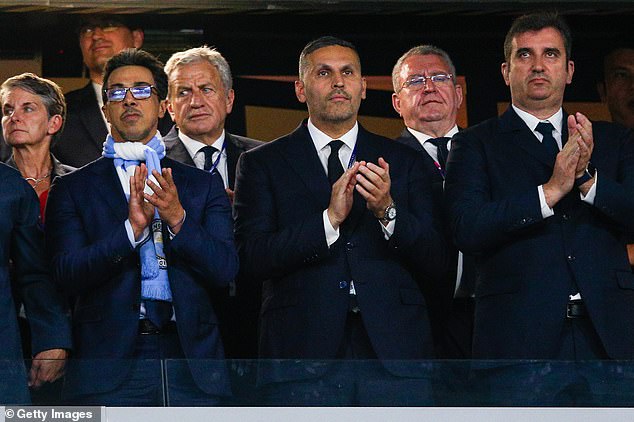
Man City Files Legal Challenge Against Premier League Over Amended Sponsorship Rules Allegedly Favoring Arsenal
Manchester City Launch New Legal Challenge Against Premier League Sponsorship Rules
(Images: [1] Man City’s leadership; [2] Premier League CEO Richard Masters; [3] Legal representative Lord Pannick KC; [4] Aston Villa owners; [5] Pep Guardiola’s squad)
Manchester City have escalated their clash with the Premier League, contesting amended sponsorship rules they claim still unfairly target clubs with state-backed owners. This marks the second legal battle in a year over Associated Party Transaction (APT) regulations, introduced in 2021 to prevent inflated commercial deals between clubs and owner-linked entities.
Background: City’s Initial Victory
Last year, City won a tribunal ruling declaring the original APT rules—enacted after Newcastle United’s Saudi-led takeover—“unlawful” under competition law. The regulations required sponsorships from owner-linked firms to meet “fair market value” (FMV) standards but exempted shareholder loans. The tribunal deemed this exemption discriminatory.
Despite City’s objections, 16 of 20 Premier League clubs voted in November 2023 to tweak the rules rather than overhaul them. The revised APT regulations now allow clubs to convert shareholder loans into equity during a grace period (ended January 2024) or face FMV assessments.
City’s Core Grievances
City’s legal team, led by Lord Pannick KC, argues the amendments still favor clubs relying on shareholder loans. They claim these clubs avoid immediate FMV scrutiny on loans, gaining a “cashflow advantage” by deferring interest payments for up to three years. Meanwhile, commercial deals with affiliated parties undergo stricter 30-day FMV reviews.
(Image: Man City’s leadership team, including Sheikh Mansour and CEO Ferran Soriano, criticize the rules as biased.)
In an 88-page submission, City emphasized “discriminatory treatment” persists, citing rival clubs like Arsenal, Brighton, Everton, and Leicester, which secured £259m–£450m in shareholder loans in recent years. They argue the Premier League’s amendments fail to ensure “transparency, objectivity, and proportionality,” distorting competition.
Legal Standoff Escalates
City contend the original APT rules were deemed entirely “void” by the tribunal, rendering amendments invalid. The Premier League insists the revised rules remain enforceable. A second tribunal victory for City would upend financial regulations, reverting clubs to pre-2021 “related party” guidelines and renewing scrutiny on CEO Richard Masters.
(Image: Premier League CEO Richard Masters faces pressure amid the dispute.)
Broader Implications
The case—distinct from City’s pending 115 financial misconduct charges—highlights tensions between state-owned clubs and traditional rivals. Aston Villa’s owners back City’s stance, signaling divides among clubs. If successful, the challenge could weaken league oversight, enabling wealthier clubs to leverage owner-linked funding more freely.
(Image: Villa’s Wes Edens and Nassef Sawiris support City’s position.)
Conclusion
The Premier League declined to comment. Meanwhile, City’s aggressive legal strategy underscores their determination to reshape financial governance, potentially reshaping English football’s economic landscape.
(Image: Pep Guardiola’s squad remains focused amid off-field battles.)
(Word count: 646)


